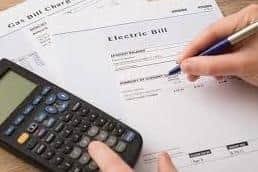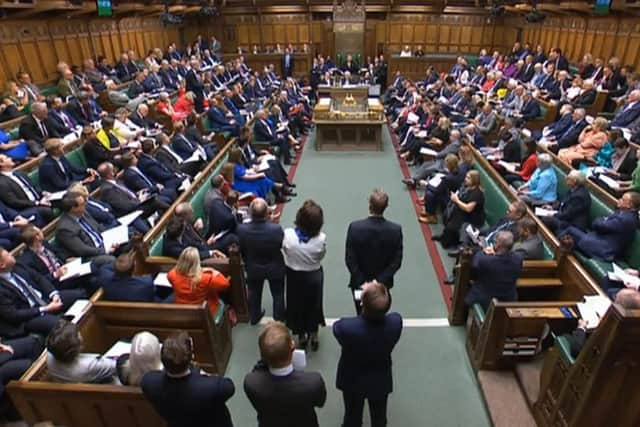Energy bills: What has Liz Truss announced and what does it mean for my bill as price is capped at £2500?
The guarantee on energy costs, which is aimed at saving families and businesses from financial ruin if bills continue to rise as predicted, will be funded by increased borrowing after Ms Truss rejected calls for a windfall tax on oil and gas producers.
What has Liz Truss announced and how much will be saved?
The Prime Minister’s two-year plan will save the average household around £1,000 from October and protect billpayers from further expected rises over the coming months.


Advertisement
Hide AdAdvertisement
Hide AdFor businesses and other non-domestic users such as schools and hospitals, which have not been covered by the existing price cap, a six-month scheme will offer equivalent support.
After that there will be ongoing support for the most vulnerable industries, with a review in three months’ time to decide where the help should be targeted.
The plan will see the Government limit the price suppliers can charge customers for units of gas, replacing the existing price cap set by regulator Ofgem.
When will the price cap be introduced?


Under the current domestic energy cap, households face average bills of £1,971 but this was set to rise to £3,549 in October – and forecasts have suggested it could hit as high as £7,700 by April 2023.
The £2,500 “energy price guarantee” will apply in England, Scotland and Wales from October 1, with the same level of support made available to Northern Ireland, which has a separate energy market.
The guarantee is based on the existing cap, plus the already promised £400 energy bills discount for all households, meaning costs will be similar to those faced today.
How is it being funded?
The Government will use tens of billions of extra borrowing to provide energy suppliers with the difference between the new, lower price and what they would charge were this not in place.
The Prime Minister also said a fund would be set up for those using heating oil, living in park homes, or on heat networks.
Advertisement
Hide AdAdvertisement
Hide AdSpeaking in the Commons, Ms Truss said: “We are supporting this country through this winter and next and tackling the root causes of high prices so we are never in the same position again.”
She went on: “For those using heating oil, living in park homes, or those on heat networks, we will set up a fund so that all UK consumers can benefit from equivalent support.”
The Prime Minister’s official spokesman has only said the cost of the support will be “tens of billions”. Previous estimates have put the strategy at around £150 billion.
Chancellor Kwasi Kwarteng is expected to give more specifics during his fiscal announcement later this month.
Ms Truss has refused to impose a windfall tax on the soaring profits of oil and gas giants, as called for by Labour. Instead, her plans will be paid through borrowing.
Does that mean all bills will be £2,500?
No, it is the unit price of energy which is capped and based on an average. Bills could still be higher or lower depending on the amount of energy used.
